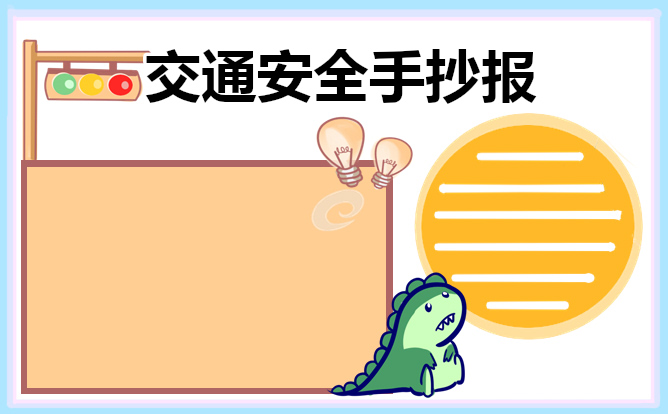8年级下册英语知识点复习
8年级下册英语知识点复习笔记
现代英语注重交际能力的培养,听说、读、写相结合,背诵能有效地弥补语境的不足。以下是小编为大家带来的8年级下册英语知识点复习笔记,欢迎参阅呀!

8年级下册英语知识点复习笔记
Unit1
【短语归纳】
1.too much太多 2.lie down躺下
3.see a dentist看牙医
4.get an X-ray做个X光检查
5.take one’s temperature量体温
6.put some medicine on…在…上敷药
7.have a fever发烧
8.play computer games玩电脑游戏
9.all weekend整个周末
10.take breaks/take a break休息
11 without thinking twice没多想
12 go to doctor看医 13.get off下车
14.take sb.to the hospital送某人去医院
15.wait for等待
16.to one’s surprise使…惊讶的;
17.thanks to多亏;由于 18.in time及时
19.think about考虑
20.have a heart problem患有心脏病
21.get to到达 22.right away立刻;马上
23.get into trouble造成麻烦(或烦恼)
24.do the right thing做正确的事
25.fall down摔倒 26.play soccer踢足球
27.put…on sth.把…放在某物上
28.a few几个;少数 29.come in进来
30.get hit/sunburned被打击/晒伤
31.be interested in对…感兴趣
32.be used to习惯于 33.because of因为
34.take risks/take a risk冒险
35.lose one’s life失去生命
36.run out(of)用完;耗尽
37.cut off切除 38.get out of离开;从…出来
39.make a decision/decisions做决定
40.be in control of掌管;管理
41.think about考虑 42.give up放弃
43.go mountain climbing去爬山
【用法集萃】
1.need to do sth.需要去做某事
2.see sb. Doing sth.看见某人正在做某事
3.ask sb.sth.询问某人某事
4.expect sb.(to)do sth.期望某人做某事
5.agree to do sth.同意做某事
6.help sb.(to)do sth.帮助某人做某事
7.want to do sth.想要做某事
8.tell sb. to do sth.告诉某人去做某事
9.have problem(in)doing sth.
10.be/get used to doing sth.习惯做某事
11.use sth. to do sth.用某物去做某事
12.seem to do sth.好像做某事
13.keep on doing sth.继续做某事
14.mind doing sth.介意做某事
Unit2
【短语归纳】
1.clean up打扫(或清除)干净
2.cheer up(使)变得高兴起来;振奋起来
3.give out分发 4.used to曾经…;过去…
5.give away赠送;捐赠 6.set up建起;设立
7.make a difference影响;有作用
8.come up with想出 9.put off推迟
10.put up张贴 11.call up打电话给
12.help out帮助…摆脱困难
13.care for照顾;照看 14.give up放弃
15.try out for参加选拔 16.come true实现
17.run out of用光 18.take after与…相像
19.fix up修理 20.be similar to与…相似
【用法集萃】
1.need to do sth.需要做某事
2.make plans to do sth.制定计划做某事
3.ask sb.(not)to do sth.要求某人不要做某事
4.used to do sth.过去常常做某事
5.give up+时间+to do sth.放弃时间去做某事
6.get a feeling of…有…感觉
7.decide to do sth.决定做某事
8.help sb.(to)do sth.帮助某人做某事
9.make a difference to对…产生影响
10.make it possible for sb.to do sth.
使得做某事对某人来说是可能的
Unit3
【短语归纳】
1.do the dishes洗餐具
2.take out the rubbish倒垃圾
3.go out出去 4.stay out待在外面;不在家
5.help out帮助完做某事 6.at least至少
7.throw down扔下 8.all the time频繁;反复
9.in surprise惊讶地 10.as soon as一…就…
11.spend…on…在…花费(金钱或时间)
12.in oder to为了
13.provide sth. for sb.向某人提供某物
14.depend on依赖;信赖
15.look after照顾;照看 16.get into进入
17.keep it clean and tidy保持它干净和整洁
18.take care of照顾 19.as a result结果
【用法集萃】
1.finish doing sth.做完某事
2.want sb. to do sth.想要某人做某事
3.try(not)to do sth.尽力(不)做某事
4.let sb. do sth.让某人做某事
5.spend…(in)doing sth.花费…做某事
6.mind doing sth.介意做某事
7.learn to do sth.学会做某事
8.learn how to do sth.学会怎样做某事
9.the+比较级,the+比较级 越…,就越…
Unit4
【短语归纳】
1.too much太多(修饰不可数名词)
2.too many(修饰可数名词)
3.hang out闲逛 4.get into a fight争吵
5.go to sleep去睡觉
6.call sb.(up)给某人打电话
7.be good at擅长 8.talk about谈论
9.on the phone在电话中
10.look through浏览;翻阅;仔细检查
11.give back归还
12.be angry with sb.生某人的气
13.a big deal重要的事 14.no problem没问题
15.work out解决;算出
16.get on with sb.与某人和睦相处
17.feel lonely感到孤独
18.communicate with sb.与某人交流
19.in future今后;从今以后 20.next time下次
21.make friends交朋友 22.be worried about担心23.be afraid of害怕… 24.in front of在…前面
25.not…any more不再… 26.play sports做运动
27.compete with sb.与某人竞争
28.so much/many那么 29.have lessons上课
30.go shopping去购物 31.cut out删除;删去
32.a few几个;少数 33.all kinds of各种各样的
34.compare…with…比较;对比
35.agree with sb.同意某人(的想法)
36.in one’s opinion依…看
37.something quiet一些安静的事
38.turn down调小
初中英语八年级下单元知识点
Unit 1 What’s the matter?
一、基础知识
1. What’ s the matter? 怎么啦?出什么事情了?
【解析】matter/ ' mætə(r)) /n.问题;事情
What’ s the matter with you?= What’s the trouble with you? = What’ s wrong with you? 你怎么了?
【注】: matter 和trouble 为名词, 其前可加the 或形容词性物主代词,wrong 是adj. 不能加the
【用法】用于询问某人有什么病或某人遇到什么麻烦、问题其后跟询问对象时, 与介词with连用。即:
What’s the matter with sb.? = What’s your trouble? = What’s up? = What happens to sb.?
— What’s the matter with you ? — I have a bad cold.
2. I had a cold.我感冒了。 have a cold=catch a cold=have the flu感冒
have a fever 发烧 have a cough咳嗽 have a stomachache胃疼,肚子疼 have a toothache牙疼 have a headache头疼
3. 身体部位+ache(疼痛)构成新的复合词
stomach+ache=stomachache head+ache=headache tooth+ache=toothache back+ache=backache后背痛
4. much too+ 形容词,意为 太...... ,too much+名词,意为 很多,大量 。
5. enough【形容、副词】足够的/地,enough放在名前后,形副后。good enough足够好,enough money=much money
6. lie down躺下, lie 躺,躺着,过去式lay;lie说谎,过去式lied
7. maybe “或许”,常用于句首,表示可能性,后加句子。Maybe you are right.
may be,是情态动词+be的结构,意为“可能,也许”,后加名词、代词或形容词。He may be angry.
sound like+名词代词和从句:It sounds like you don’t know the truth.
It sounds like a good idea. sound+形容词,“听起来,好像”,The music sounds nice.
9. need 需要,实义动词need+名词,需要某物;
need to do sth.需要做某事,主语通常是人,表示人主动的动作:You need to listen carefully during class.
need doing sth.主语通常是物,表示被动的动作:Your dirty clothes need washing.
10. get off (the bus) 下(公交车) get on 上车
11. agree 同意,赞同;
agree with sth. 同意某事 如:I agree with that idea.
agree to sb. 同意某人的意见 如:I agree to LiLei.
12. trouble问题,麻烦 ;be in trouble遇到麻烦,make trouble 制造麻烦 ,have trouble (in) doing sth. =have difficulties (in) doing sth做......有麻烦。
13. right away=right now=at once,意为 马上 。
14. advice [不可数名词]劝告,建议,向…征求意见, give sb. advice on sth.就某事给某人建议; advise [动词] advise sb. to do sth. 建议某人做某事
advise sb. doing sth.
【复习】exercise 练习、锻炼
当exercise意为“练习”时,为可数名词 即可加s
当exercise意为“锻炼”时,为不可数名词 即不加s
16. hurt 及物动词,使……疼痛,……受伤,He hurt his leg while exercising.
不及物动词,……(部位)疼。 His leg hurt badly.
clean 【动词】打扫,clean the classroom打扫教室,【形容词】 干净的 ,cleaner意为 清洁工 。
18. hit (用手或器具)打;击打 The boy hit the dog with a stone.
hit sb. on the head/ nose/ back打某人的头、鼻子、后背,on用在所打较硬的部位;
hit sb. in the face/ eye/ stomach 打某人的脸、眼睛、肚子,in用在所打较软的部位。
be used to sth./ doing sth.习惯于、适应了……、做某事,强调状态;His grandpa was used to country life.
Mary is not used to getting up early in the morning.
get/ become used to sth./ doing sth. “变得习惯,逐渐适应……”强调过程、动作:
It’s difficult for one to get used to another country’s habit.
20. 【复习】free [形容词]空闲的free time;免费的the drink is for free;自由的I want to become a free bird.
free【动词】使……解脱,得到自由:He could not free his arm.
run out用完,用尽 When his water run out, he knew that he would have to do something to save his own life.
物sth. run out. 某物用尽了。
人sb. run out of sth. 人用尽了某物。He run out of all his money last night.
22. risk (sb.) to do sth. 冒险去做某事 take a risk=take risks 冒险
23. the importance of (doing) sth.(做)某事的重要性
We students should know the importance of (learning) English.
importance n. 重要(性), important adj.重要的,unimportant adj.不重要的
decision 【名词】决定;抉择; make a decision 做决定 ;
make a decision to do sth.= decide to do sth. 。
25. be in the control of …掌管,管理 The headmaster is in the control of this new school.
be out of control无法控制,无法管理 be under control被控制住,在控制之中
26. 【复习】mind意为 介意 ,mind doing sth. 介意做某事 ,
Would you mind my opening the window?
27. give up (doing) sth. 放弃(做)某事,give up (playing) computer games;
give up后可接名词、代词和动词ing形式,也可不接,如: Never give up easily.
二、重点语法
【反身代词】英语中共有八个反身代词,在使用时应注意和它所指的相应的对象在人称、性别、数上保持一致。
数 人称 第一人称 第二人称 第三人称
单数 myself yourself himself herself itself
复数 ourselves yourselves themselves
【用法】
1. 可用作宾语,指的是宾语和主语表示同一个或同一些的人或事物。
如:Maria bought herself a scarf. We must look after ourselves very well.
2. 可用作表语,指的是表语和主语表示同一个或同一些人或事物。 如: She isn’t quite herself today.
3. 可用作主语或宾语的同位语,常用来加强语气。
如:She herself will fly to London tomorrow. I met the writer himself last week.
4. 用在某些固定短语当中。
初二下册英语期中知识点梳理
动词不定式(to do)的用法
1.作主语
为避免句子的头重脚轻,常用it作为形式主语,而真正的主语动词不定式后置。
常用句型:It +be+adj./n.+(for/of sb.) to do sth./It takes sb. some time to do sth.
2.作宾语
动词want, decide, hope, ask, agree, choose, learn, plan, need, teach, prepare常接动词不定式作宾语。
3.作(后置)定语
常用于“have/has+sth.+to do”或“Its time to do sth.”等结构中。
4.作宾语补足语
tell, ask, want, invite, teach, like, call等可接带to的动词不定式作宾语补足语,构成tell/ask/want /call/invite sb. to do sth.结构。
【注意】动词不定式作使役动词和感官动词的宾语补足语时应省去to:“一感(feel),二听(listen to, hear),三让(let, make, have,四看(look at, see, watch, notice),半帮助(help)”。
5.动词不定式作状语
主要用来修饰动词,表示目的,结果或原因。为了强调目的,有时可以把动词不定式放在句首,或在不定式前加in order (to) 或so as (to) “为了,目的是”。
提高初中英语听力水平的方法
学会预测
预测是在做听力理解之前根据各种暗示,如所给答案选项,段落或对话标题等已有知识,对即将听到的段落或对话内容进行预测。
这有助于我们对整个英语听力题目有个大概的了解,选出更加准确的答案。除此之外,平时还要打好扎实的基础功,就是丰富自己的词汇量,以及各个单词及单词组合的用法,英语短语的含义,这些基本功有助于我们更好理解听力的内容。
突破认知障碍
(1)把做过题目当中(包括听力、单选、完型、阅读)遇到过的日常用语、惯用语、俚语记在一个本子上,然后利用零散时间,比如在等公车、上学回家的路途中经常翻出来看看。久而久之,这些生僻的表达就不再成为同学考场上的拦路虎了。
(2)跳出做题的范畴,闲暇时间多看看英美国家的影视资料,比如走遍美国、老友记以及许多经典的英文电影。这样,在我们娱乐的同时,既能更多地接触西方文化,又能积累习语、俚语,熟悉洋鬼子们的日常表达习惯。
提高听力最佳方法
第一,学生听前必须快速浏览练习题,捕捉一切可以从题面上得到的信息。
第二,专心致志,抓住要点,联系前后内容。在听的时候,不管是听几遍,都不可以掉以轻心。要注重句子和短文的整体内容,抓住重点词语和要点,不要强求听清每一个单词。可根据预览效果以及听到内容来捕捉正确答案的有关信息。
第三,眼耳并用,动笔记录。记录时要有重点、有技巧,如数词用阿拉伯数字记录、地点人名用代号、长词用缩写并抓住主要成分。
提高初中英语阅读理解能力的方法
单词与语法知识
文章都是由单词按照语法规则组成的,提高英语阅读水平首先要具备一定的词汇量和基本的语法知识。很多时候我们对文章不理解,就是因为文章生词太多,只懂只言片语,就容易产生误解,无法选择正确答案。
写作知识与作文规则
阅读和写作是一个相对应的过程。虽然文章都是由单词按照语法规则组成的,但文章不只是句子的简单叠加和堆积,英语文章有自身的结构特点和写作规则。
比如,如何连词成句、如何连句成段、如何连段成篇等等。所以,提高阅读水平的另一个要素是了解英文的写作特点和规则。
原著的优点
我们学习英文可以多阅读一些英文原著。因为原著能够给阅读者提供一种原汁原味的感觉和体验,还能学到不少有用的知识,如欧美历史文化、艺术、生活。此外,这样的阅读体验还能提高我们的英语综合能力。





